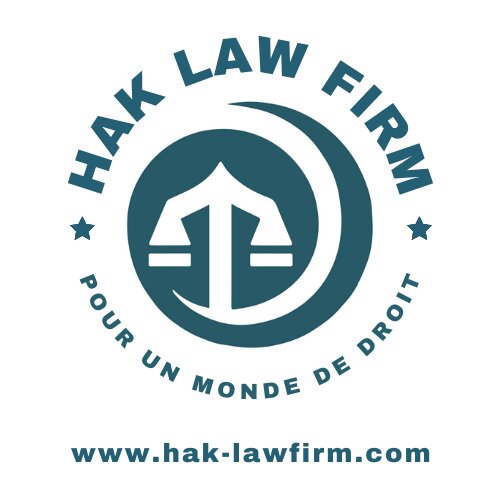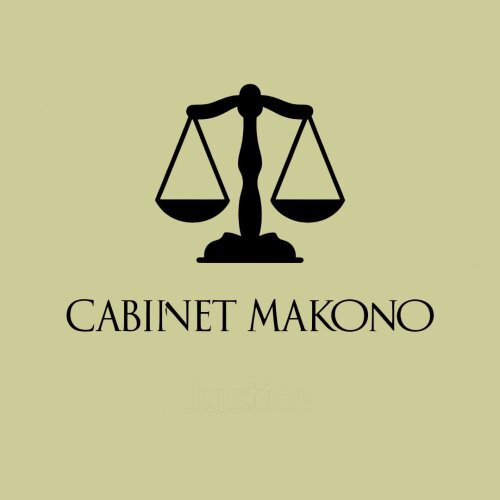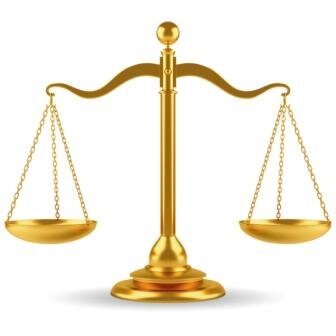Best International Lawyers in DR Congo
Share your needs with us, get contacted by law firms.
Free. Takes 2 min.
Or refine your search by selecting a city:
List of the best lawyers in DR Congo
About International Law in DR Congo
International law in the Democratic Republic of Congo (DRC) encompasses a variety of rules and standards that govern the country's interactions on a global scale. This includes bilateral agreements, multilateral treaties, and conventions ratified by the DRC, as well as customs and principles recognized by the international community. The DRC is a member of several international organizations, including the United Nations, African Union, and World Trade Organization, which influence its legal framework. Understanding the intersections between international and local laws is crucial for effectively navigating legal matters in the DRC.
Why You May Need a Lawyer
There are numerous situations in which you might require the expertise of a lawyer specializing in international law within the DRC. These may include:
- Engaging in cross-border trade or investment and need guidance on compliance and regulatory requirements.
- Involvement in disputes arising from international contracts or agreements.
- Issues related to human rights, as governed by international instruments and their implementation in the DRC.
- Immigration-related matters for individuals or businesses operating transnationally.
- Dealing with disputes concerning diplomatic or consular law.
Local Laws Overview
When navigating international law in the DRC, several local legal aspects are particularly relevant:
- Treaty Implementation: The DRC's Constitution mandates that international treaties and agreements ratified by the country become part of domestic law, provided they align with Constitutional provisions.
- Investment and Trade: The DRC has enacted laws to attract foreign investment, offering various guarantees and protections consistent with international economic agreements.
- Human Rights: The DRC is signatory to several key international human rights treaties, impacting local legal standards regarding civil and political rights.
- Environmental Law: As a country rich in natural resources, the DRC participates in international efforts for environmental protection, blending international and national responsibilities.
- Judicial Co-operation: The country partakes in extradition treaties and judicial cooperation frameworks to facilitate international legal processes.
Frequently Asked Questions
What is the role of international treaties in the DRC’s legal system?
International treaties ratified by the DRC are integrated into its domestic legal framework and hold significant legal authority, providing they do not conflict with the Constitution.
Do international human rights laws apply in the DRC?
Yes, the DRC is party to numerous international human rights treaties, which influence local laws and policy-making, thus protecting various civil and political rights within its jurisdiction.
How are international trade disputes handled in the DRC?
The DRC adheres to international agreements, such as those under the World Trade Organization, to resolve trade disputes, often seeking amicable settlements through international arbitration or adjudication.
What steps should I take if my international business contracts face legal issues in the DRC?
Consult with a qualified lawyer specializing in international trade and investment law who can guide you through arbitration or litigation based on jurisdiction clauses in your contract.
Can foreign judgments be enforced in the DRC?
Enforcement of foreign judgments in the DRC requires recognition by local courts, typically assessing whether the original court had jurisdiction and if this enforcement aligns with DRC's public policy norms.
What constitutes a breach of international law within the DRC?
Breach scenarios can vary from human rights violations, non-compliance with binding treaties, to disrespecting international trade and commerce agreements.
Are there particular laws governing foreign employment in the DRC?
Yes, foreign employment is subject to local labor laws alongside international labor standards, with stipulations for work permits and employment contracts.
How does international environmental law affect businesses in the DRC?
Corporate operations in environmental sectors must conform to both national regulations and international protocols, which cover biodiversity, deforestation, and resource extraction.
What is the process for addressing international crimes in the DRC?
The DRC collaborates with international criminal bodies, such as the International Criminal Court (ICC), to prosecute serious international crimes as permitted under both local and international laws.
Who can represent me in an international legal matter in the DRC?
Seek representation from legal professionals with expertise in international law resident in the DRC, including members of international legal firms, to address your specific legal needs.
Additional Resources
For further assistance, consider reaching out to the following organizations:
- The Ministry of Foreign Affairs, DRC: Offers information on international treaties and agreements.
- The Congolese Bar Association: Can help locate qualified international law attorneys.
- The United Nations Human Rights Office in the DRC: Provides insights into applicable international human rights norms.
- Local chambers of commerce: Provide resources and guidance for international trade and investment queries.
- Non-governmental organizations (NGOs): Focus on legal aid concerning human rights, environmental law, and international cooperation.
Next Steps
If you require legal assistance in international law concerning the DRC:
- Identify the specific area of international law relevant to your situation.
- Research and select a qualified lawyer or law firm specializing in international law within the DRC.
- Prepare all relevant documentation and information related to your legal matter.
- Schedule a consultation to discuss your case and develop a legal strategy.
- Consider utilizing additional resources or seeking guidance from international bodies if necessary.
Lawzana helps you find the best lawyers and law firms in DR Congo through a curated and pre-screened list of qualified legal professionals. Our platform offers rankings and detailed profiles of attorneys and law firms, allowing you to compare based on practice areas, including International, experience, and client feedback.
Each profile includes a description of the firm's areas of practice, client reviews, team members and partners, year of establishment, spoken languages, office locations, contact information, social media presence, and any published articles or resources. Most firms on our platform speak English and are experienced in both local and international legal matters.
Get a quote from top-rated law firms in DR Congo — quickly, securely, and without unnecessary hassle.
Disclaimer:
The information provided on this page is for general informational purposes only and does not constitute legal advice. While we strive to ensure the accuracy and relevance of the content, legal information may change over time, and interpretations of the law can vary. You should always consult with a qualified legal professional for advice specific to your situation.
We disclaim all liability for actions taken or not taken based on the content of this page. If you believe any information is incorrect or outdated, please contact us, and we will review and update it where appropriate.
Browse international law firms by city in DR Congo
Refine your search by selecting a city.
















